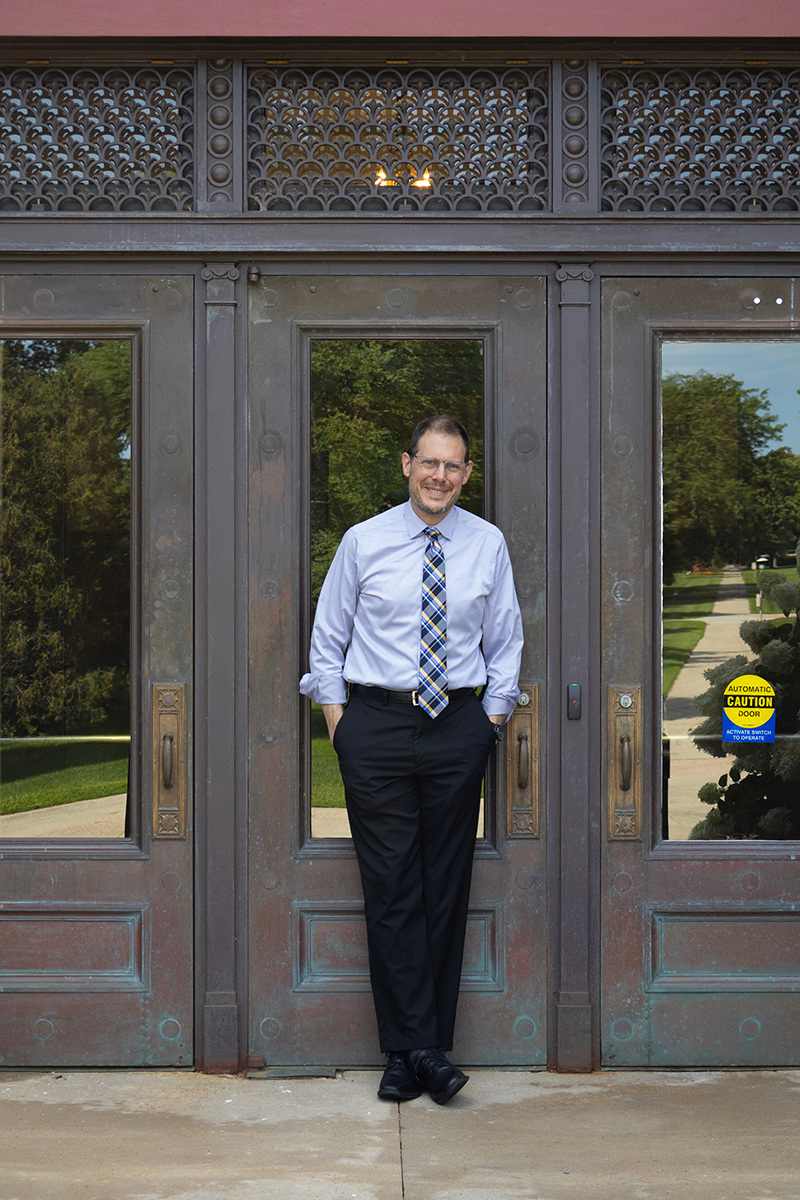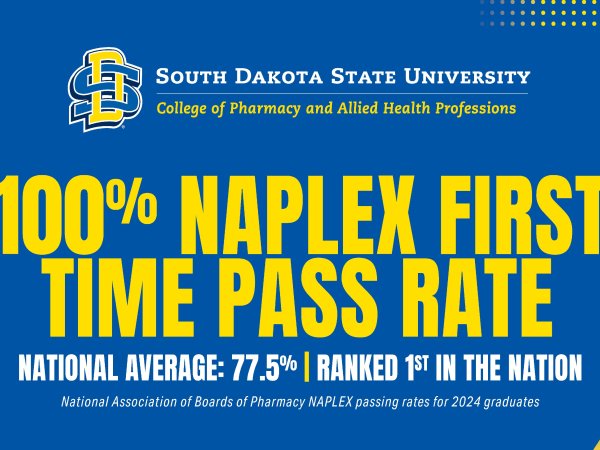David C. Earnest was named dean for the College of Arts, Humanities and Social Sciences at South Dakota State University in June and began his job on campus in July.
Earnest obtained his undergraduate degree from Stanford University in California, and his master’s and doctorate from the George Washington University in Washington, D.C.
The collegian recently sat down with the dean so students, faculty, and more can get to know him.
Question: Tell me a little bit about your career up until this point.
Answer: Straight out of my undergraduate years, I worked in Washington, D.C., where I spent five and a half years working for a think tank as a public policy research organization. I spent a lot of time working with the Department of Defense, the United States Military and Congress. I really enjoyed the work. It was a lot of fun to work in Washington and to work with really important public policy questions.
After a few years, I decided I wanted to be an educator, which led me to pursue a Ph.D. and start my career in higher education in 2004. This marks my 21st year of teaching. I started my career as an academic at Old Dominion University in Norfolk, Virginia, making SDSU my third university. I have also had a few short-term appointments at a couple of other universities.
Q: What drove you to pursue a degree in higher education?
A: There were two things. One was that I was working in D.C., and through the public policy process, you learn that it’s messy and full of compromise, which is how the process has to work. But I often felt those compromises were uninformed and weren’t as thoughtful as they could be. I was interested in some higher-level conceptual questions behind some of these policy challenges, and so when I realized I was really interested in becoming a primary researcher, that’s one of the things that drove me to be an educator.
The other thing I think really drove me and took me years to understand this was when I was a kid; I never felt understood, and I learned that to find that feeling of understanding, I found I had to communicate. I had to express myself, and I found myself more organically. I don’t think I was becoming a teacher through those years, but I found myself as one who did a lot of verbalizations to try and think. I realized that because of that, it really attracted me to being a professor. Through this profession, I can practice the art of expression, and through expression and working with students and exploring ideas, I could find that feeling of understanding that I just never felt like I had a kid.
Q: Before becoming a jackrabbit, where did you teach, and what are some of the important lessons you learned from those experiences?
A: In the United States, I have taught at George Washington University in Washington, D.C., Old Dominion University in Norfolk, Virginia, and the University of South Dakota in Vermillion, South Dakota.
Overseas, I taught at the University of Sydney, Australia; the University of Western Australia in Perth, Australia; and The University of Southern Denmark in Odense, Denmark. I have also lectured at the University of Toronto in Toronto, Canada, the University of St. Gallen in Gallen, Switzerland, and many more places.
It’s been very interesting to see the ways that different countries organize higher education compared to the U.S. From my time within the U.S. universities, I have learned that they are organized fairly similarly, which has allowed me to move comfortably among those universities and sort of understand how we want it organized. In Australia and Denmark, and during my time studying abroad in the United Kingdom, I learned that higher education is very different.
I was able to learn the different styles of teaching that required lots of self-direction and self-guidance through the classes. It forced me to develop the skills to learn on my own in the absence of a syllabus or set of written instructions or assignments. It was a completely different style of education than what I was used to.
I have been able to learn different ideas and bring those ideas into my service as dean. The experiences allowed me to think innovatively about how we can do things differently.
Q: The Jacks host the Coyotes in football on Oct. 26. Who are you going to be rooting for?
A: SDSU, of course!
I didn’t go to school at either place, so I don’t feel the personal connection others may feel toward each university. However, President Dunn has really emphasized this pathway to a premier strategic plan, which is one of the things that I really appreciate about SDSU as a whole organization. We are challenging ourselves to be better and to be the best, and I really value that.
I will go to the game to support the Jacks because I work here and believe in that mission. I believe that, as President Dunn suggests, we must commit to challenging ourselves to be the best we can be.
Q: How do you plan to support the extracurricular activities on campus?
A: Personally, I want to make myself a resource for student organizations. I want to make sure that they feel like they can come and talk to me about their needs and their activities, and I want to be present to celebrate with them. I want to make an effort to get to know the student life and the activities and organization that students are a part of. I know how valuable my experience was being a part of student clubs and organizations. I want to make sure that we are doing everything we can to support the students attending.
Q: What are you looking forward to implementing into the College of Arts, Humanities and Social Sciences?
A: I am really interested in making sure that we expand our research. We are working to make transdisciplinary work and serve the needs of our communities and South Dakota. We really want to think about the quality of life in our rural communities.
Q: What advice would you give to students just starting their academic journey in the College of Arts, Humanities, and Social Sciences?
A: My advice would be to join a student organization. We have so many interesting organizations and activities, from student media journalism to the criminal justice club; there is something for everyone. Those are where I think we build a sense of community as young people.
Meet one of the newest deans on campus
Stanford University alum had various teaching positions across the world, before joining SDSU as the head of the College of Arts, Humanities and Social Sciences
Tessa Erdmann, Agricultural Editor
September 10, 2024
Meet the newest Dean for the college of arts, humanities and social sciences, David Earnest
3
More to Discover
About the Contributor
Tessa Erdmann, Ag News Editor



















